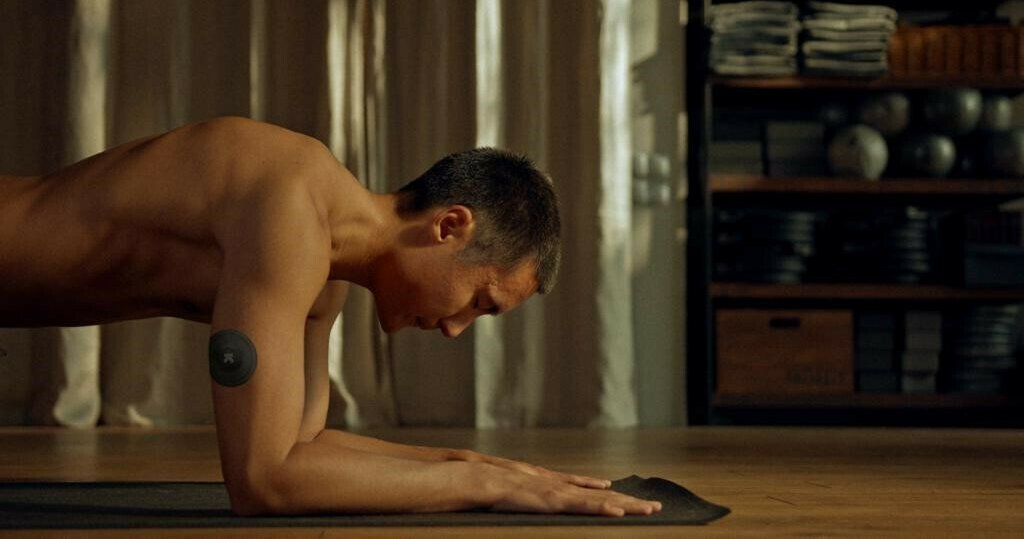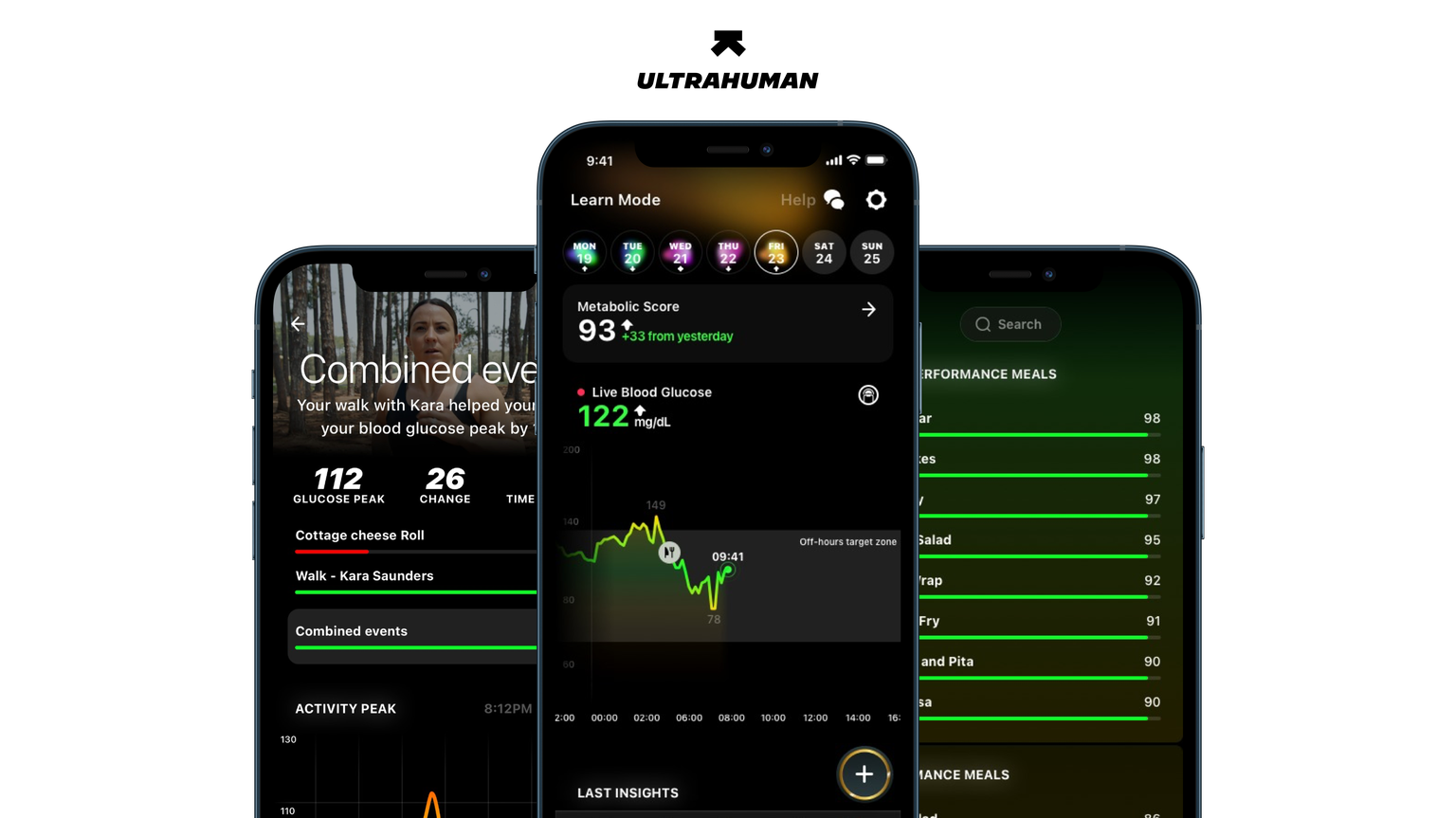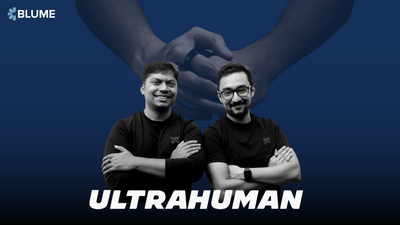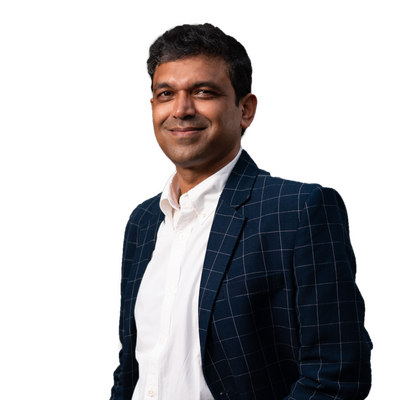Why We Invested In Ultrahuman
- Published
- Reading Time
- 4 minutes
- Contents
Our thesis
We are living through an unprecedented global health crisis, specifically a metabolic health crisis. Over a billion people in the world suffer from a metabolic health syndrome, which includes high blood pressure, high blood sugar, excess body fat around the waist and abnormal cholesterol levels. The syndrome increases a person’s risk of heart attack, stroke, type-2 diabetes, and a host of other lifestyle diseases. Metabolic disorders contribute to almost 85% of all chronic diseases in the world. Seven of the 10 leading causes of death in the U.S. are strongly related to metabolic dysfunction. Besides the tragic loss of life, these diseases add an unimaginable strain on our already starved healthcare resources & budgets globally.
This is a shame, particularly when you realize how preventable such lifestyle diseases are. That’s where UltraHuman comes in.
The Ultrahuman Cyborg wearable helps people optimize their exercise and nutrition based on glucose biomarkers. The Ultrahuman wearable launched in June 2021 has already amassed thousands of users in the waitlist with users raving about their experience on Twitter after using the wearable.
The metabolic health crisis is unarguably one of the largest healthcare crises that exists today. Over a billion people in the world suffer from a metabolic health disorder. Metabolic disorders contribute to almost 85% of all chronic diseases in the world. By helping people understand how food and exercise affects their metabolic health, people would be able to make informed choices about what they eat and their activity levels. The approach is a geography / diet agnostic way to help people eat and exercise better.
Trends in consumer health
Increasing awareness of lifestyle diseases: Today, lifestyle diseases such as obesity (caused by lifestyle factors e.g., smoking, unhealthy diet, and physical inactivity) represent a rapidly growing threat to the health of populations in an increasing number of countries. In fact, they are now so common that they are replacing traditional problems such as undernutrition and infectious diseases as the most significant causes of health issues, particularly in developed economies. There is, thankfully, a growing awareness of this amongst general consumers, who are looking for simple and effective ways to improve their lifestyles and associated health outcomes.
Adoption of digital health platforms & solutions: COVID-19 has certainly accelerated this trend with more consumers than ever signing up for online fitness classes & digital health apps. This has resulted in significant funding for digital health apps (e.g., HealthifyMe, Noom) during the pandemic.
Wearable devices & focus on data: Technology has evolved to the point where we can now capture various biomarkers and health data for consumers affordably (blood glucose, heart rate variability, resting heart rate etc.), which is leading to a wearable and data revolution in consumer healthcare. New-age consumer wearable companies globally like UltraHuman, WHOOP, Levels, Oura etc. are helping consumers improve their lifestyles by making data-driven & personalized decisions that work for them. We expect this trend to accelerate dramatically over the coming decade.
Healthcare becoming more holistic: While we intuitively already knew this, data is illuminating just how interconnected our physical bodies and our minds truly are; and that optimum health can only be achieved if one focuses on all the key pillars of holistic well-being i.e., physical activity, mental health, nutrition, sleep. We’ve seen the success of apps like Calm & Headspace in mental health and we’re now seeing exciting companies being built in the space of sleep & recovery e.g., Eight Sleep, Oura etc. We believe the consumer healthcare companies of tomorrow will provide their users with a holistic solution across all these facets of health.
Home equipment with software layer: A trend that was underway before the COVID-19 pandemic (but has certainly accelerated since) was the preference of consumers to work out from the comfort of their homes with equipment that allowed them to interact with world-class trainers on a screen (think Peloton). Besides cutting out significant travel time and being significantly more convenient, the business model also makes a lot more sense because it allows one trainer to reach several more participants than would be possible in any physical setting, democratizing access to a larger number of people.Fitness becoming more social & community driven: As with almost everything, human beings yearn for social connection, and fitness is no exception. Companies like Strava have shown that adding a social layer and building a strong community around the product enables most consumers to be more accountable, motivated and have more fun during their workouts. We expect this trend to continue with more platforms incorporating strong social hooks to engage and retain their user base.
The Ultrahuman origin story
Ultrahuman was started by Mohit Kumar and Vatsal Singhal who were also co-founders at Runnr that later merged with Zomato. Mohit is an avid cyclist, biohacker and Brazilian Jiu-Jitsu enthusiast. Vatsal is a cross fit enthusiast and biohacker. Mohit was training at one of the largest MMA Camps in the world (Tiger Muay Thai). There he observed athletes train smartly via usage of data, recovery tools and protocols. He got together with Vatsal and they came up with a vision for Ultrahuman where they can make the journey of fitness for people more personalised and impactful.
Says Mohit Kumar: “Biomarkers will change how the fitness and the healthcare industry works. By being able to continuously monitor their biomarkers like glucose, users can not only avoid chronic diseases but make lifestyle changes that help them improve their fitness levels for longevity and performance. ”
A single biomarker like glucose can reveal so much about how a particular food item affects the user’s metabolic health by measuring the glucose response. This response is unique to an individual and it depends on various factors like their microbiome diversity, stress levels, time of the day, food ingredient quality etc.
How does the tech work
By using a medical-grade continuous glucose monitoring wearable device, the platform arms users with real-time data and insights on their metabolic health, nudging them to make the right lifestyle choices to improve metabolic health & performance (besides preventing diseases, improved metabolic health can lead to improved energy levels, endurance, mood, memory and cognitive performance). The platform also boasts world-class content by some of the top practitioners (across physical fitness, meditation, sleep etc.), thus giving users a full-stack health platform that marries hardware, software and content seamlessly.
We at Blume, truly believe that UltraHuman’s holistic approach to metabolic health is the future of consumer health & fitness globally, and are excited by the company’s vision to create a bio-marker led, data-driven and personalized solution that improves metabolic health outcomes for millions across the globe. The founders’ relentless customer obsession and desire to do the hard things right shines through, and we’re extremely proud to continue to back the UltraHuman team in this Series B round.”







